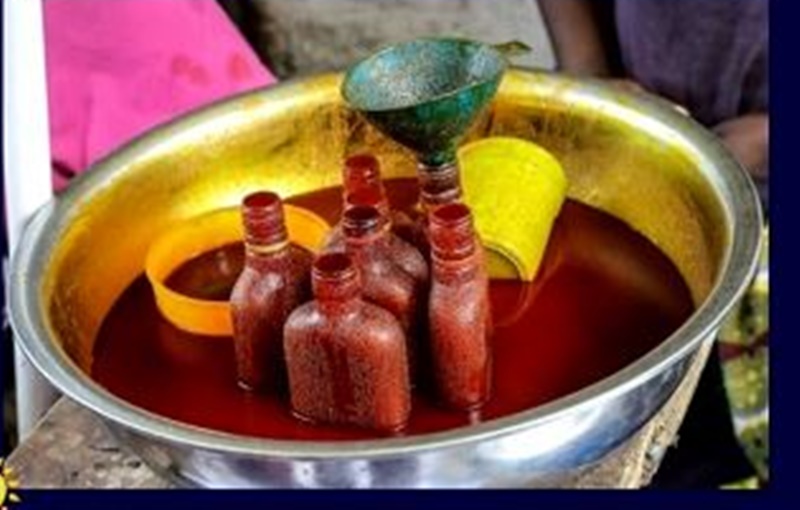Kofi Essel, the Director for Industrial Support Services at the Food and Drugs Authority (FDA), has said that Sudan IV dye in palm oil causes cancer due to the harmful substance the dye contains.
In an Interview on Movement in the Morning Political Show, he made known that FDA is setting up strict measures to combat the use of Sudan dyes in palm oil production.
‘’Sudan IV dye is a chemical and an Industrial color used for making leather, textiles, plastics, and cosmetics and it is not edible. We have food and non-food coloring agents and both are used for different purposes. When the non-food coloring agent is used for consumption purposes, it becomes dangerous for our health. The use of Sudan dyes is as a result of the high demand for the reddish nature of palm oil. There is no red palm oil, it is just a shortage of vocabulary and how we perceive its color”, he said.
“Ghana is an expert in palm oil production and countries such as Malaysia export from us. We produce 80,000 metric tonnes per year. Palm oil is not red, it looks reddish but turns yellow when it spots a white attire’’, Paul Amaning, Board Member for Government Tree Crop Development Authority added.
Essel indicated that the authority is introducing a testability system to ensure all palm oils in the market are free from Sudan IV dye. “We will spend 12 days on the project in Kade and its environs. Our mission is to trace people who buy palm oil in bulks to ensure it is safe for consumption. The people they buy from and the people they sell to; from retailer to the producer will all be recorded”.
“The chemical in the dye is very detrimental to our health and today we are recording childhood cancer due to harmful food items we eat. We have to be very particular about the palm oil we consume. If we keep consuming palm oils that contains dye for three years or more there is a high possibility of getting cancer”, Essel stressed.
“We are introducing an identification system where we register our members on one data base which can be downloaded just like Whatsapp and the other platforms, that will give details of persons who are genuinely producing palm oil in Ghana’’, Amaning revealed.
“We will fish out those who put the Sudan dye into palm oil”, they both declared.
They encouraged consumers to focus more on the Vitamins the palm oil gives rather than the redness.
In October 2021, FDA sampled palm oils from some major markets across the country, including 10 markets in Greater Accra, to test for the existence of Sudan IV dye, and that led to several arrests. The laboratory analysis indicated that out of the 306 samples analysed, 70 failed the test for Sudan IV dye.
Video below…

